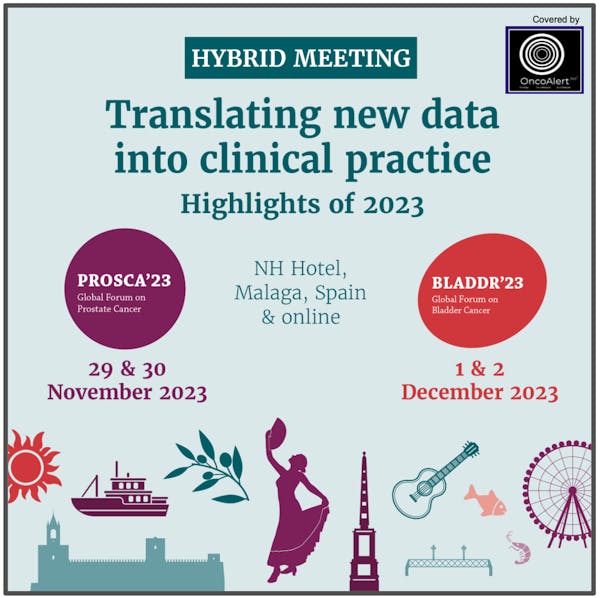OncoAlert Proudly announces that we will be covering the upcoming PROSCA-BLADDR meetings! These multidisciplinary international meetings will focus on the implications of new clinical findings in Prostate and Bladder Cancer on your daily practice.
Save the Dates:
PROSCA'23: November 29 & 30, 2023
BLADDR'23: December 1 & 2, 2023
Location: The conferences will be held in beautiful Malaga, Spain.
Hybrid Meeting: Whether you attend in person or virtually, PROSCA-BLADDR offers a hybrid format for global accessibility.
Click on image to find out more about the meeting



